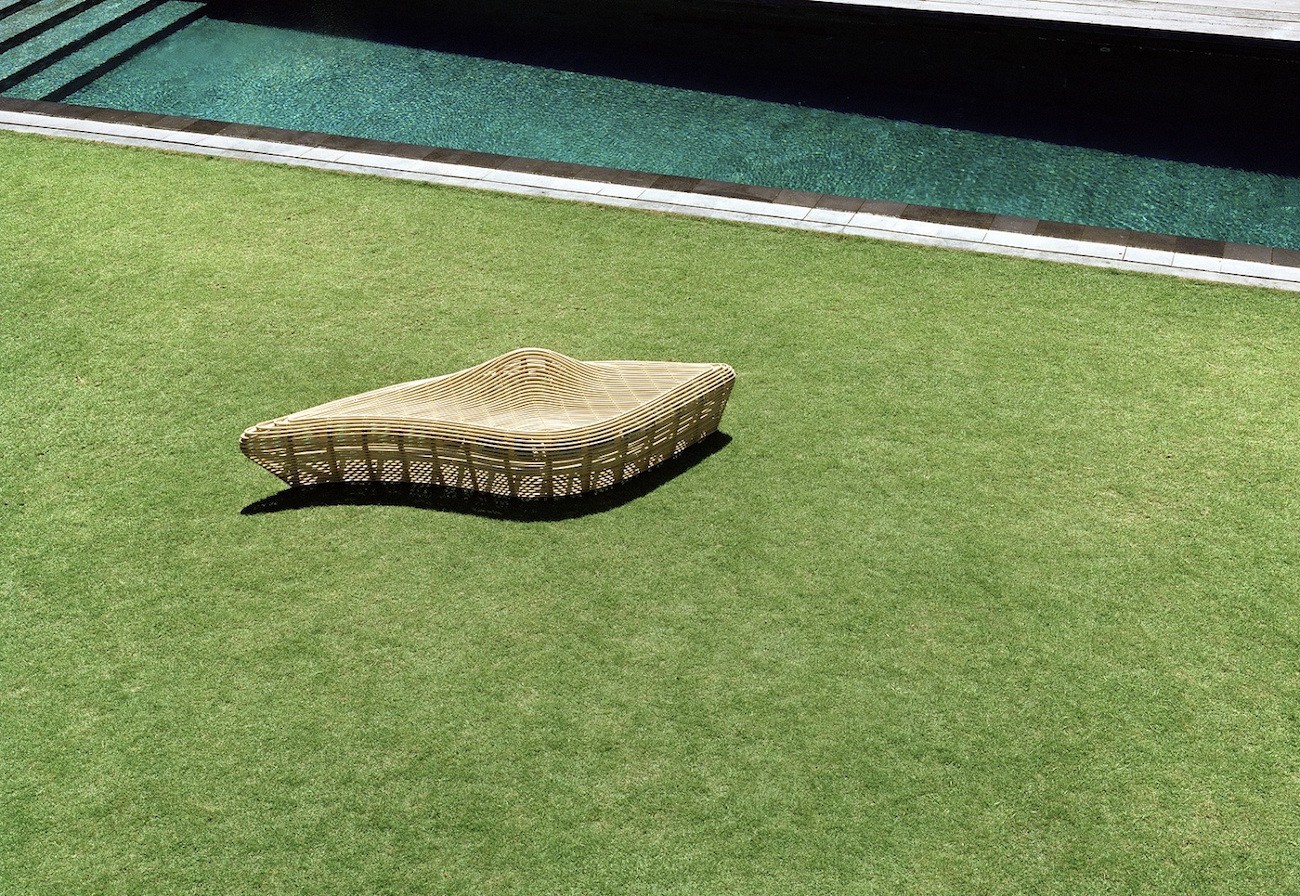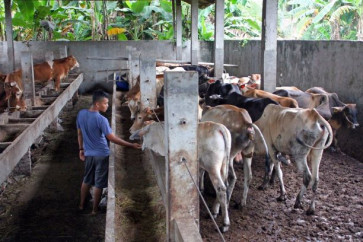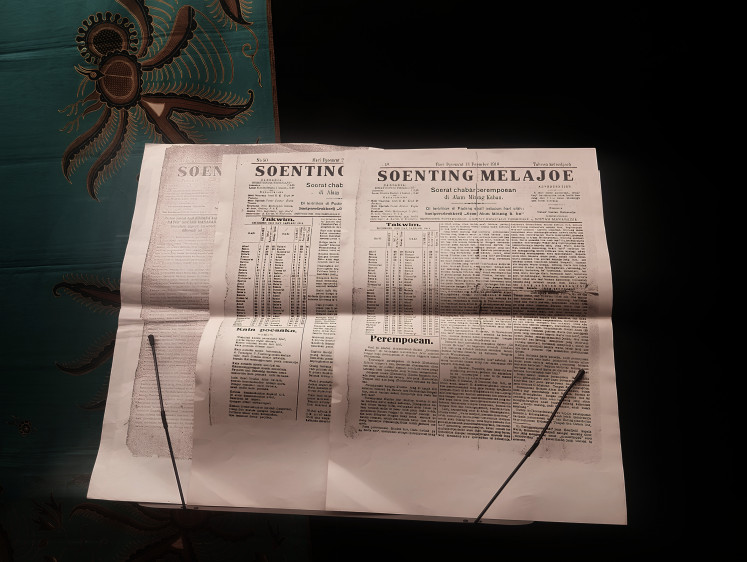Japanese brand highlights Indonesian rattan at Maison&Objet
Change text size
Gift Premium Articles
to Anyone
 'Linger' by Alvin Tjitrowirjo has a contemporary fluid structure, consisting of two intertwined parts resembling a boat and raised wave. (Yamakawa/Francesca Ferrari)
'Linger' by Alvin Tjitrowirjo has a contemporary fluid structure, consisting of two intertwined parts resembling a boat and raised wave. (Yamakawa/Francesca Ferrari)
A
n elegant rattan sofa-bench designed by 34-year-old Indonesian-born product designer Alvin Tjitrowirjo is among the products showcased at the Tokyo-based Yamakawa Rattan booth at Hall 7 of giant interior design trade show Maison&Objet, which runs until Tuesday.
Exhibiting for the first time at Maison&Objet, the 1952-established Japanese brand, which has specialized in high-quality design-oriented rattan furniture for over 60 years, presents several products from Japanese designers. Alvin, the sole Indonesian designer on the team, has a new version of “Linger”, which boasts a contemporary structure consisting of two intertwined parts resembling a boat and raised wave.
Alvin, who himself had participated in Maison&Objet in September 2017 and is set to exhibit again in September this year, has been collaborating with Yamakawa since 2009, and until now remains the only Indonesian designer working with the brand, which uses rattan from the rainforests of Kalimantan, Sulawesi and Sumatra and has manufactured the material in its two factories in Cirebon, West Java since 1990s.
“In the beginning, our factory was in Japan. But after the Indonesian government banned the export of raw materials, we were obliged to move our factory to Indonesia,” the company’s president director Isam Lababedi told The Jakarta Post at the booth on Sunday. “We currently employ a total of 1,100 people at the factories since all our products are handmade, producing at least 200 pieces per day and selling them globally.”
Read also: French founder strives to elevate Indonesian brand at Maison&Objet
The United States is Yamakawa’s biggest market, followed by Japan, Australia and Europe. “The Indonesian market itself is very small — perhaps because Indonesians are already very familiar with rattan and don’t have the same appreciation for its design and quality. We do have a gallery in Kemang [in South Jakarta].”
Selling rattan furniture was not easy, said Lababedi, as it takes a lot of education to the public. “Some people would rather spend their money on imported Italian leather, for instance, than on rattan. The customers’ perspective of rattan furniture, which was especially popular in 1980s and 1990s, is that the product is cheap; while ours is life-long. The raw material itself is not something you grow in plantations as it only grows if it has a host tree. That’s why people have to go to the rainforests to look for it.”
As it is a fast-growing plant and will grow again if cut the right way, rattan also serves as a sustainable and ecofriendly option. “As long as there are rain forests, there’s rattan, which is a win-win situation for the ecology. It’s also light, can bend in many forms and leaves no waste as all parts of it are used. It’s also processed without any machines since all parts are basically homemade, so it’s a very low carbon-footprint furniture,” said Lababedi.
Alvin, who started his own brand in 2006, also shares a similar passion concerning rattan, although he also works with other materials like wood, bamboo, metal and synthetics.
“Eighty percent of all rattan species in the world can be found in Indonesia. So geographically this very sustainable material belongs to Indonesia,” he said. “Unfortunately, it has a bad image following its popularity in 1980s due to local factories’ lack of innovation and price war. Thus I feel sympathetic with this material; it’s a beautiful material yet undervalued. I want to change that, hence I started to explore and create works using rattan.”
Lababedi said the brand was looking forward to collaborating with Alvin again in many years to come. “We want to show the many possibilities with this rattan material, so we love working with different designers.” (asw)









